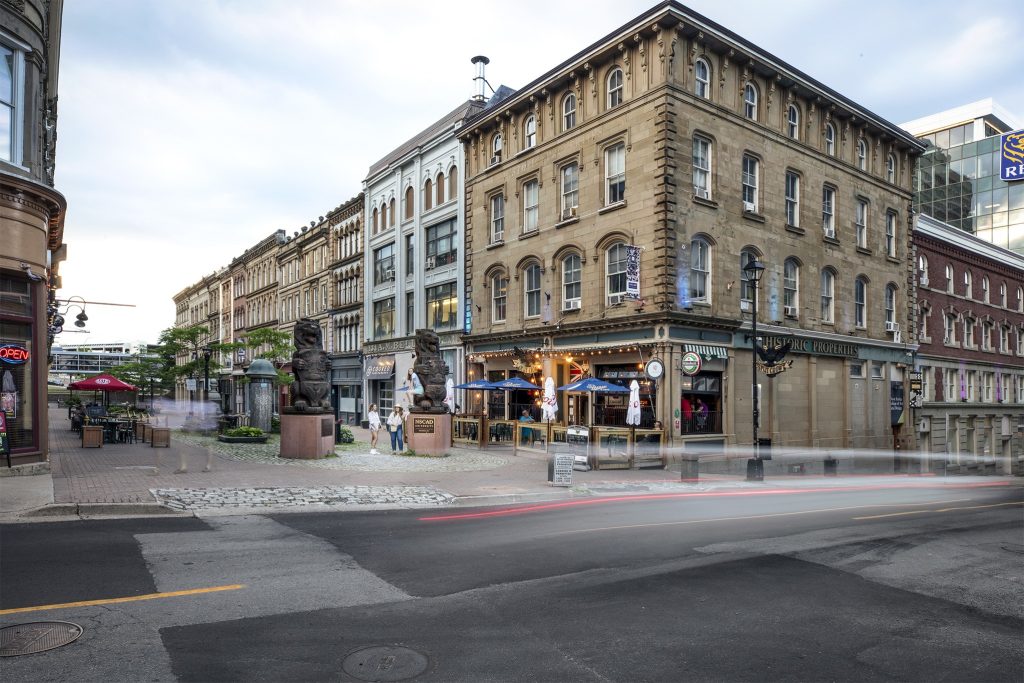NSCAD University’s highest priority is to protect the health and safety of its community members on our three campus sites (Fountain, Academy and Port).
Following the new Province of Nova Scotia directive effective July 31, NSCAD requires the use of non-medical masks or face coverings in all indoor common spaces on our campuses to prevent the potential spread of COVID-19.
NSCAD’s mask requirement is aligned with universities across the province and Nova Scotia’s Public Health’s recommendations, and is part of the University’s COVID-19 Campus Response Plan. The University’s response plan is currently with Public Health and will be shared with the University community once approved by the Province.
Who is included in this requirement?
Everyone must wear a non-medical (cloth) mask or face covering in any indoor common areas, public spaces and passageways on all NSCAD campuses. Masks are already mandatory on all public transportation and will continue to be so.
Physical distancing to a minimum of two (2) metres is still required at all times, and although masks are not required in studios, workshops or outdoors, we encourage everyone to wear one when possible to look out for the health a safety of each other. Within the new directive, children under 2 are exempt, as well as children 2 to 4 when their caregiver can’t get them to wear a mask. People with a valid medical reason for not wearing a mask are also exempt.
Where can I get a mask?
As part of its Campus Response Plan, NSCAD adopted standards for personal protective equipment (PPE) use while on campus and will continue to provide appropriate PPE to personnel identified as needing it to do their work.
We will continue to provide disposable, non-medical masks to anyone visiting any of our campuses until mid-September, after which we’ll advise the NSCAD community to source and bring their own masks, and use them as required.
How will compliance be enforced?
All NSCAD community members are expected to follow the COVID-19 Code of Conduct, ‘the Code’. The Code is a protocol that explains expected rules of behaviour, states values, provides guidance and recommends action so that everyone knows exactly what is expected of them.
We will initially focus on education and training to ensure that mask protocols are known and practiced always, and to promote the collective benefits of wearing a mask. We’re all part of a rich and diverse community that has survived for over 130 years, through hurricanes, explosions, pandemics and more because of people who care. Now more than ever, we need to look out for each other by wearing a mask. The Code provides more information on how to report breaches and the consequences for the same, including escalating disciplinary measures.
Why is NSCAD not holding in-person classes like public schools?
NSCAD’s COVID-19 Campus Response Plan conforms to the Provincial Sector Framework for universities, which is separate from the Provincial Sector Framework for public schools. Pending approval by the Public Health Authority, our plan will be the reference for all activity on campus.
As always, I want to recognize and appreciate the evident, incredibly caring manner that everyone is showing to engage our students in a rich educational experience that is suddenly digital, while keeping the health and safety of everyone in NSCAD’s community our first priority.
Wishing you a relaxing summer and looking forward to a great fall semester.
ANN-BARBARA GRAFF (she/her)
Vice-President (Academic & Research) and Provost
NSCAD University
NSCAD has developed safe work practice guidelines for members of the NSCAD community who use a non-medical mask. [PDF]
Other resources for guidance on the selection, usage and care/washing of non-medical masks and face coverings:
Government of Nova Scotia: Wearing a non-medical mask
Government of Canada: How to safely use a non-medical mask or face covering

